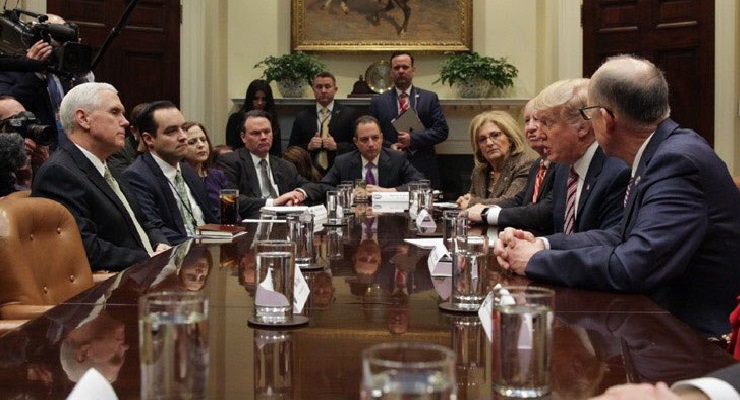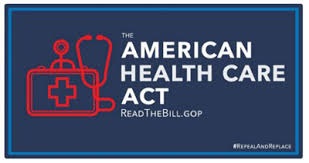
Earlier this month, the American Health Care Act (AHCA) passed in the House of Representatives, moving it forward to the Senate.
If passed, the changes it brings would result in less people insured, impacting the accessibility to proper care and the ability of physicians to provide services. The law would also lower subsidies for those purchasing insurance under the Affordable Care Act (ACA) exchanges, reduce Medicaid coverage, and higher premiums for older individuals. Ultimately, the expansion of Medicaid to those at the poverty level will be halted and millions of low-income individuals will lose coverage.
The AHCA also influences local policy, allowing states to excuse insurance companies from covering services, which forces more payments to come directly from patients. Those with preexisting health conditions are most disadvantaged, as coverage can more easily be denied.

Meanwhile, the Trump administration has started the process of dismantling the policies in the Affordable Care Act by trimming and slowing down mandatory payments.
Unlike the Affordable Care Act, the AHCA seeks to reduce the federal government’s involvement in providing healthcare. In fact, the AHCA plans to cut federal spending by $1.15 trillion through limitations on expenditures and subsidies.
The main theoretical framework of the AHCA relies on the concept of personal responsibility for healthcare. Essentially, it is the belief that when a patient oversees their own bills, they will avoid unnecessary services, thus, decreasing inflation in healthcare. To assist patients in their responsibility to pay out-of-pocket for healthcare, the bill establishes tax-free health savings accounts (HSAs), which patients fund themselves to pay for services. Those with low incomes, however, will not have the means to support these accounts.
Yet despite the AHCA’s goal to remove federal regulations, it also forces people who did not have insurance for at least 63 days but then sought coverage to pay a premium that is 30% higher than normal—which is a stricter penalty than the tax penalty under the Affordable Care Act. Such a penalty serves as a disincentive for enrollment.
Another key distinction between the AHCA and the ACA involves their approach in covering the unhealthy. The AHCA disadvantages the less healthy by shielding healthier patients from contributing to the costs of unhealthy patients, while the ACA collectivized every patient in the system to give one standard regardless of health status. Likewise, those who seek access to special services, such as maternity benefits or mental health coverage, would be the only ones responsible for paying for such services.
Those with preexisting conditions are also discouraged under the AHCA from accessing normal insurance plans. Not only will healthcare costs rise substantially for these patients, they can be denied insurance altogether.
Meanwhile, the bill disadvantages the old as well, allowing insurers to charge older adults five times more than younger adults—which is an increase from the three times more that is currently in place by the ACA.
Ultimately, physicians and other healthcare providers will endure providing more uncompensated care. CBO analysis of the bill predicts that the number of uninsured will nearly double, increasing the percentage from 10% to 19% of Americans.
It is important to note that while the AHCA allows federal savings by removing healthcare expenses, it eliminates hundreds of billions of tax money provided by drug companies, device-makers, and high-income Americans. The net deficit of the bill, thus, would be only $150 billion, as $1 trillion in revenues is lost to tax cuts.
In terms of support from mainstream medical groups, the AHCA is left without backing. The American Academy of Pediatrics, the American College of Physicians, the American Academy of Family Physicians, and the American Medical Association have all released statements of disapproval, mainly due to the immense loss of coverage for millions of Americans.
Ultimately, the American Health Care Act does not partake in measures to resolve the main criticisms the medical community have, which deal with the intrusiveness of current policy from allowing practices to provide care. Yet the AHCA does manage to strip healthcare access from the most vulnerable populations who need it most—individuals with preexisting conditions, the mentally ill, the old, the sick and the poor. And unfortunately, any federal savings from cutting off care are made practically obsolete—transferring billions of dollars in tax cuts to the rich.
Leave a Reply